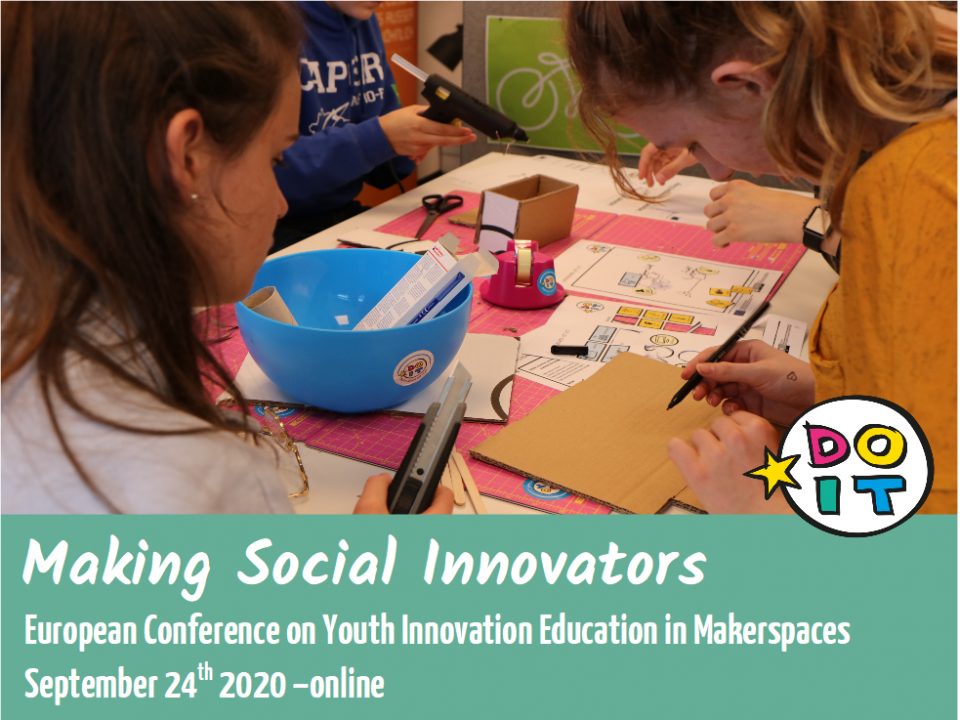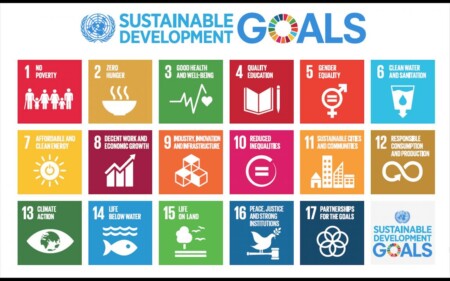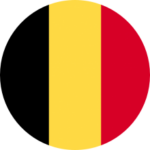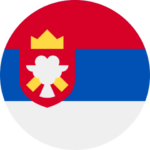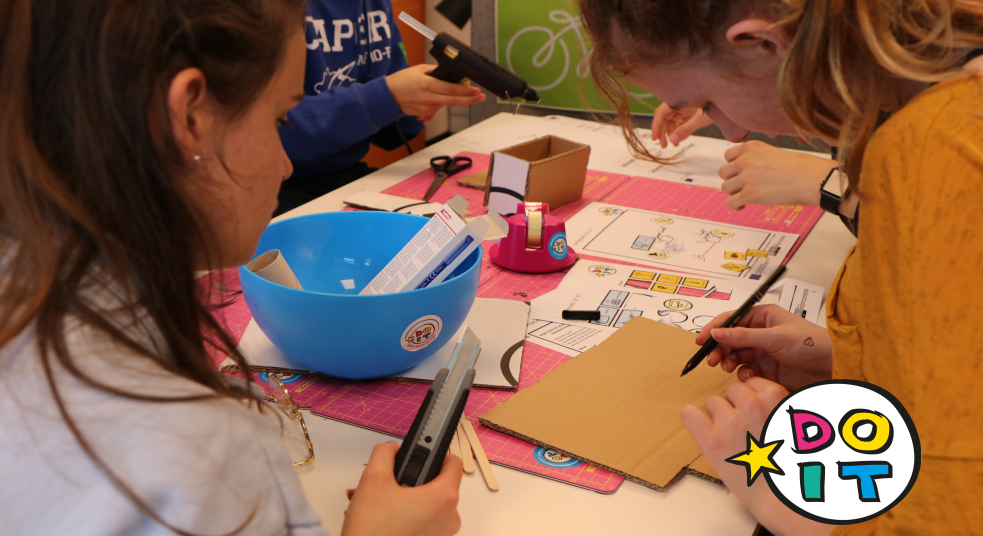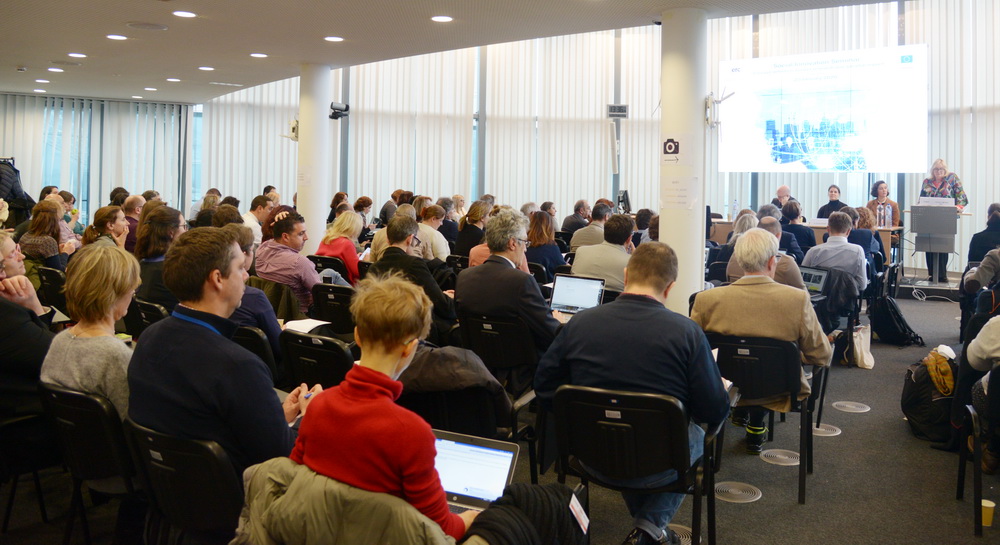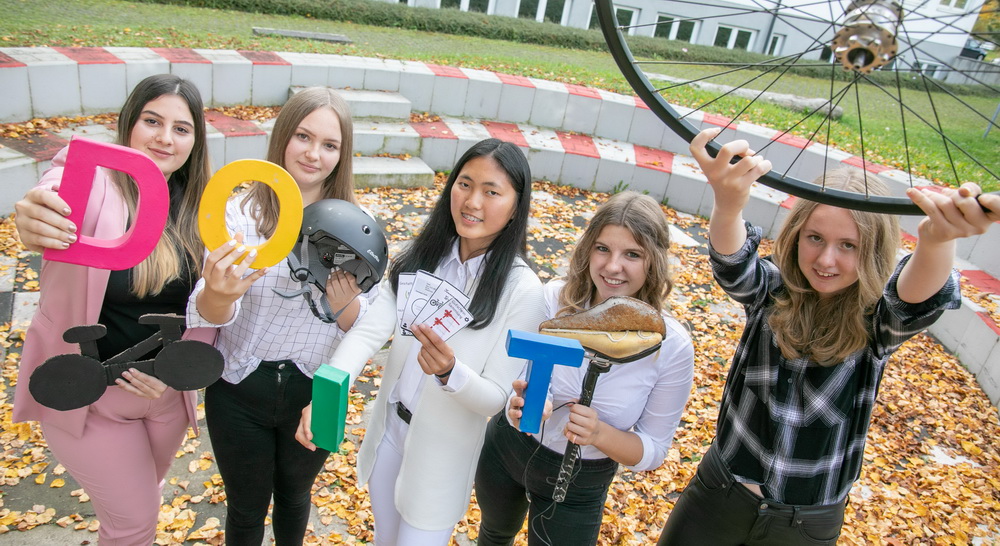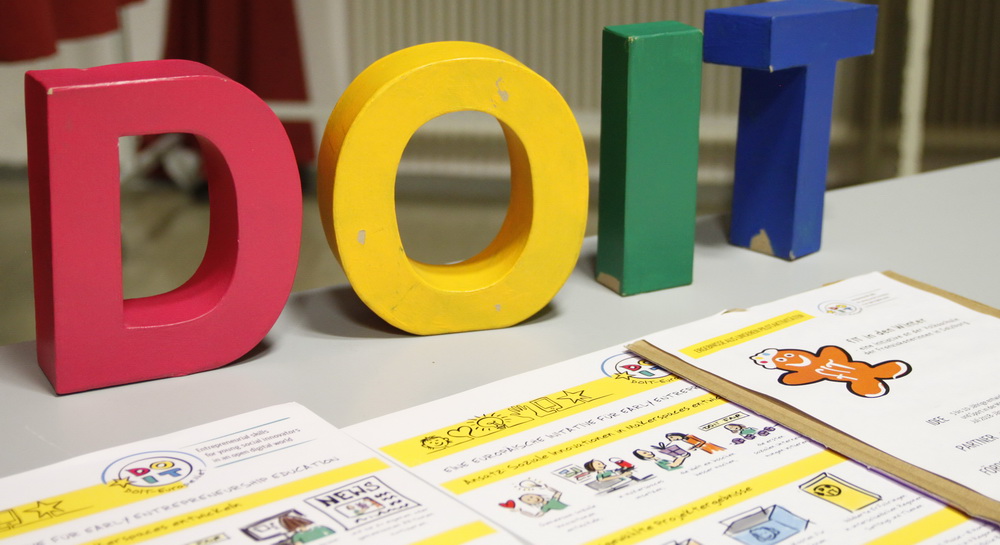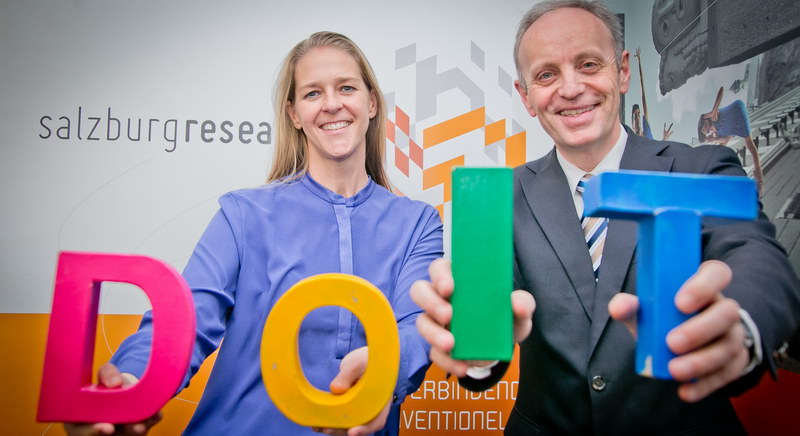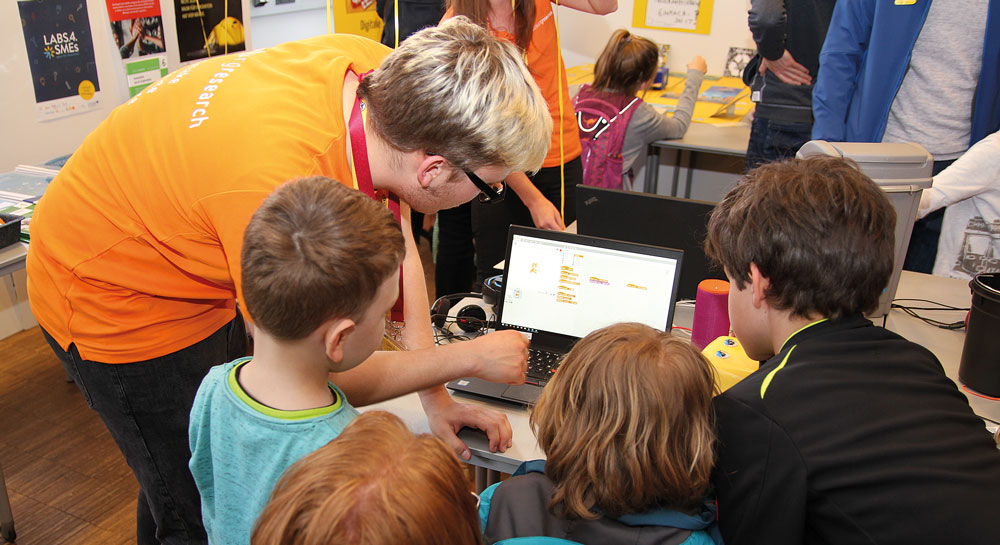DOIT – Entrepreneurial skills for young social innovators in an open digital world
Befähigung von Schüler/-innen der Primar- und Sekundarstufe , gemeinsam mit Erwachsenen offene Innovationsmethoden, Maker-Werkzeuge und Kooperationsfähigkeiten anzuwenden, um gesellschaftliche Probleme anzugehen.
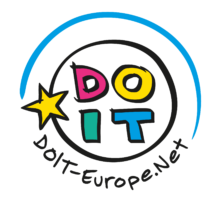
Angesichts des heutigen sozioökonomischen Klimas, das derzeit in Europa von hoher Jugendarbeitslosigkeit und zunehmender sozialer Ungleichheit geprägt ist, ist die Stärkung der unternehmerischen Fähigkeiten der Bürger von Anfang an entscheidend für die Schaffung von Wohlstand und künftiger Beschäftigung (OECD, 2012). Darüber hinaus gilt nachhaltige Innovation als der Schlüsselfaktor für globale Innovation und Wachstum (Nidumolu, 2009).
Dies geht Hand in Hand mit der Forderung nach einer neuen unternehmerischen Bildung, die von der Arbeitsgruppe für unternehmerische Bildung (2014) der Europäischen Kommission als Entwicklung von Fähigkeiten und Denkweisen definiert wird, die es den Menschen ermöglichen, kreative Ideen in unternehmerisches Handeln umzusetzen.
„DOIT – Entrepreneurial skills for young social innovators in an open digital world “ ist ein durch H2020 gefördertes Projekt, das einen neuen Ansatz für das frühe unternehmerische Denken in Europa liefern und verbreiten will. DOIT will junge Schüler/innen für aktive soziale Innovation begeistern und damit auch zu unternehmerisches Denken, Know-how und Fähigkeiten verhelfen. Das Projekt befähigt Schülerinnen und Schüler der Primar- und Sekundarstufe (6-16 Jahre), gemeinsam mit Erwachsenen offene Innovationsmethoden, Maker-Werkzeuge und Kooperationsfähigkeiten anzuwenden, um gesellschaftliche Probleme anzugehen. Es werden Toolboxes für Kinder und Begleiter/innen entwickelt, die ergänzendes Know-how und Unterstützung bieten. Sie sind so konzipiert, dass Kinder und Jugendliche in (mobilen) Makerspaces in konkreten Projekten Erfahrungen als soziale Innovatoren sammeln können.
Die DOIT-Partner bringen namhafte europäische Makerspaces und Fablabs, die bereits mit Kindern arbeiten, mit Entrepreneurship Education sowie Social-Innovations-ExpertInnen und Netzwerken zusammen. Die Arbeit des DOIT wird in drei großen Phasen durchgeführt: In den ersten sechs Monaten werden das pädagogische Konzept und eine erste Version der Module, Inhalte und Richtlinien sowie DOIT-Toolboxen als offene Bildungsressourcen entwickelt (OER, Oktober 2017 bis März 2018). Von April 2018 bis November 2019 erfolgt iterativ eine Pilotierung und Evaluation der DOIT-Module und -Plattform in 10 europäischen Praxisregionen sowie in einem Online-Setting. Die Ergebnisse und gewonnenen Erkenntnisse werden im Rahmen der Roll-Out-Phase (Dezember 2019 bis September 2020), die einen massiven offenen Online-Kurs für DOIT-Facilitators beinhaltet, intensiv an die europäischen Stakeholder weitergegeben.
The European conference on youth education in makerspaces „Making Social Innovators“ took place virtually via Zoom on the 24th of September 2020, from 9.00 to 15.00 CET. We would like to thank all of the participants who joined us for this final event of the DOIT project!
Topic
What, how and where we prepare for today’s innovation society is a new question for educational practice, research and policy.
- How can young learners work together and make creative solutions for societal issues?
- Which knowledge and which methods support teachers and learning facilitators in this process?
- How can these be integrated into the educational landscape?
The organizers of this symposium invite to exchange experiences and strategies and to test new innovation methods for a sustainable future. In working groups, the participants will have the chance to deal with the challenges, experiences, and potential of initiatives and methods around „innovation education for young people“.
The conference is aimed at practitioners, multipliers, teachers, researchers and those interested and responsible in education, innovation and educational research and politics.
Time: Thursday, September 24th, 2020, 8.30 – 15.00.
How can you support young learners to develop a creative and innovative way of thinking to solve societal challenges? Learn more about the seven elements of the DOIT learning programme and how to design your own social innovation workshops in open learning settings. We offer the handbook in multiple languages:
(Icons Freepik from www.flaticon.com)
| Preliminary versions of the Deliverables from Work Package 2: Development DOIT Approach, Toolbox & Training |
|---|
| DOIT concept and the co-creation approach |
| Toolbox for children- preliminary version |
| Toolbox for children – final toolbox |
| Training concept for DOIT facilitator trainings |
| Report on issues to reach special requirements for special target groups and settings |
| Toolbox for facilitators – preliminary version |
| Toolbox for facilitators – final version |
| Preliminary versions of the Deliverables from Work Package 3: DOIT open platform |
|---|
| DOIT co-creative open platform requirements report |
| DOIT co-creative open platform system and target specifications and architecture plan |
| DOIT platform, implemented prototype (TRL level 5/6), first version at M06 |
| Community management plan |
| DOIT platform, pilot test reports and community analysis |
| Final Platform Report |
| Preliminary versions of the Deliverables from Work Package 4: DOIT large scale pilots |
|---|
| Detailed pilot implementation plan |
| Report on pilots (phase 1) as well as potential improvements |
| Report on pilots (phase 2) as well as potential improvements |
| Key requirements, settings, processes of a successful DOIT action (2 pages) |
| Preliminary versions of the Deliverables from Work Package 6: Evaluation |
|---|
| Evaluation plan and materials (i.e. questionnaires) |
| Evaluation results pilots, phase 1 |
| Evaluation results roll-out phase |
| DOIT policy recommendations |
| DOIT impact estimations |
| EC policy briefings 1 |
| EC policy briefings 2 |
| EC policy briefings 3 |
| Final evaluation results |
| Preliminary versions of the Deliverables from Work Package 7: Dissemination and Exploitation |
|---|
| DOIT competition plan |
| Communication and Dissemination Plan |
| Dissemination and Exploration Report |
| Final Communication, Disseminations and Exploitation Report |

